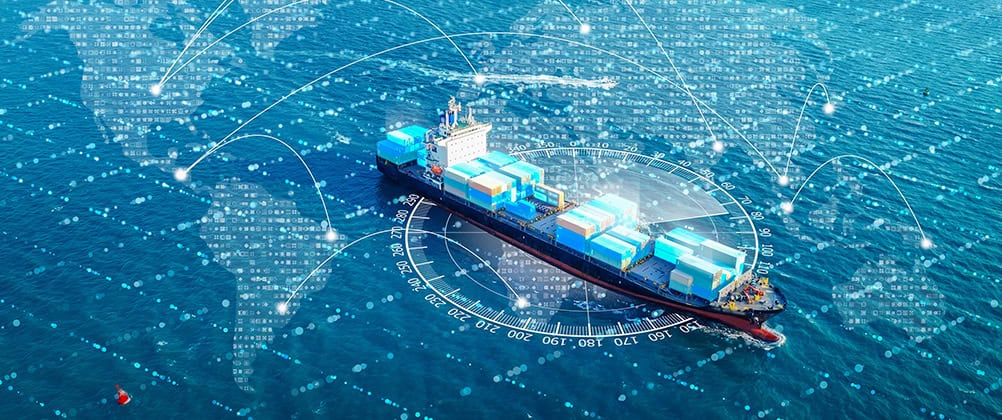Maritime Learning System: The Why, What, and How

A maritime learning system provides a flexible, online platform (the why) for ongoing maritime education (the what) through eLearning tools (the how), ensuring crews stay up-to-date in a rapidly evolving regulatory environment.
Table of Contents:
- What is the Maritime Learning System?
- Beyond Traditional Training: The Rise of Maritime Learning Systems
- Key Features for Effective Maritime Learning Systems
- Why Skill Lake is a good choice for Maritime eLearning
What is the Maritime Learning System?
The Maritime Learning System is a game-changer for seafarers navigating the ever-evolving world of maritime regulations. This comprehensive online platform utilizes eLearning tools to deliver convenient and up-to-date training that is accessible anytime, anywhere. Seafarers are no longer restricted by location or limited schedules. With internet-connected PCs, tablets, or even smartphones, they can access a wealth of formalized training modules, empowering them to stay ahead of the curve.
The system goes beyond rote memorization. Recognizing the growing complexity of regulations, it fosters critical thinking, information analysis, and synthesis skills – essential for making sound decisions at sea. This ensures crews not only comply with the latest regulations but can also adapt to unforeseen situations.
In essence, the Maritime Learning System is a lifeline for maritime professionals, providing the flexibility and knowledge they need to excel in a demanding and dynamic industry.
Beyond Traditional Training: The Rise of Maritime Learning Systems
The shipping business is one of the most severely regulated industries. It involves complex rules, guidelines, and regulations that must be followed at the regional and worldwide levels. This includes construction requirements and crew competence standards, encompassing all International Maritime Organization (IMO) rules and export, environmental, and labor norms that apply to seafarers.
Shipping firms can use eLearning solutions to train their personnel to navigate this complicated regulatory landscape efficiently and cost-effectively. Specifically, marine organizations benefit greatly from implementing a Maritime Learning system for employee training.
- Training Adaptability – Employees can learn at their own pace via eLearning, eliminating the requirement for time away from work to attend actual classes. This flexibility is a game-changer in a sector with tight timetables, where there are often unanticipated delays or rushed shipments, and maintains offices and staff worldwide.
- Savings on expenses – Online learning is comparatively cheaper than traditional classroom-based learning, and the savings compound as the number of learners increases.
- Central deployment and control – With eLearning and a little help from the IT team, one can easily handle, oversee, and secure learning content across all locations while offering centralized management of the entire process. Maritime companies can also keep their employees updated on the latest rules and regulations as soon as they are delivered by the IMO.
- Insights – Using eLearning platforms, managers may track courses, groups of learners, or even single employees across all of their global branches and offices. The extensive reporting capabilities keep them abreast of everything related to training, attendance, test scores, skill gaps, etc.
- Onboarding process standardization – Employee orientation (or “onboarding”) is nothing more than the rapid teaching of new employees about their tasks and responsibilities, and eLearning is also applicable here. A learning management system (LMS) could be used with a customized onboarding course to educate new hires on the company’s operational processes, rules, IMO, agency regulations, sexual harassment legislation, and other maritime-related regulations.
Key Features for Effective Maritime Learning Systems
A good eLearning environment is aided by a software system known as a “Learning Management System,” or LMS. LMS is primarily a web-based eLearning platform that provides access to learning content, delivers exams, tracks learner progress, and provides metrics and analytics to gauge the efficacy of the training organization. It is widely used across different industries to manage and oversee employee training programs. For example, an LMS is an effective tool for the maritime industry to facilitate necessary training for maritime professionals. The following features support a modern, high-quality LMS.
1. Customizable Dashboard: A customizable dashboard provides a complete view of the courses, activities, learner’s progress, and notifications.
2. Course Creation and Management: The ability to create and manage training courses, along with creating content, uploading files, setting deadlines, and assigning grades.
3. Learning Pathways: The ability to create custom learning pathways for employees based on their needs and goals.
4. eLearning Tools: The ability to add multimedia content, including videos, slideshows, graphical materials, etc.
5. Learners’ Progress Tracking: The ability to track employees’ learning graphs and view their performance grades.
6. Assessment Tools: Tools to assess employee comprehension and mastery of the material.
7. Communication Tools: Tools for communication between employees and instructors, such as forums, chats, and announcements.
8. Integration with social media platforms: The ability to integrate with social media platforms to foster better collaboration and networking.
9. Ease of Use: The LMS should be easy to use, with a user-friendly interface.
10. Support for mobile devices: The LMS should be accessible on mobile devices for anytime, anywhere learning.
11. Multi-language support: The LMS should offer multi-language support to facilitate international learning.
12. Learning Record Store (LRS): The ability to store and track data about employee learning history, such as which courses they have taken, what activities they participated in, and how they have performed.
13. Gamification: The use of gaming elements and game-based tutorials to engage users and motivate them to achieve their goals.
14. White-labelling: The ability to white-label the LMS for branding purposes.
15. 24X7 Support: The LMS should offer 24/7 support to ensure that users can get help whenever needed.
Read more: Case Study – How The Training Center Group Leveraged Skill Lake for Effective Training!
Why Skill Lake is a good choice for Maritime eLearning
Skill Lake LMS reveals numerous exclusive capabilities for maritime organizations and their people. Skill Lake presents:
- Accountability through self-paced learning.
- Synchronous, asynchronous, and hybrid learning
- Ability to recognize skill gaps and assign instructions.
- Deployability on local servers as well as on the cloud.
- Personalized learning journeys with coaching and mentoring.
- Gamification to promote more engaging and progressive learning.
- Hybrid learning approach with online & offline modes.
- Promotes learning from anywhere and anytime.
- Supports micro-learning and flipped learning.
- Centralized access to training and course materials.
Skill Lake helps scale training projects in response to your organization’s expanding skill development requirements. Our LMS ties learning to both individual goals and organizational needs. Skill Lake encourages learning accountability and assists in tracking competency development targets, activities, and deadlines across the organization, improving the entire learning experience. The LMS enables you to foster a culture of continuous learning and growth.
Take a quick demo here to learn more about our holistic LMS and how it can help your organization.
Build a culture of continuous learning with Skill Lake’s state-of-the-art people development platform. Give your employees professional training to help them excel in their job roles and propel your business to greater efficiency and success.
Start Today

Aarathy Jayakrishnan
Aarathy is an e-learning professional and enthusiast with a keen understanding of learning and development concepts. She writes insightful content, unraveling the possibilities that e-learning holds, and strives to make education open for all.